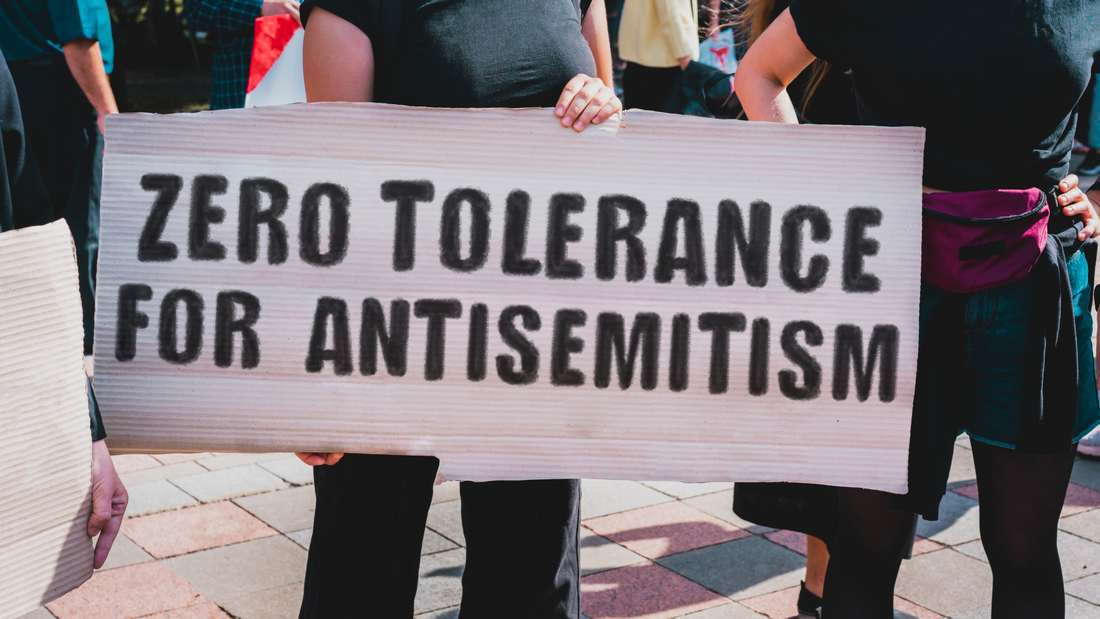|
There is something poignant and noble about the ACLU’s defense of the right to engage in antisemitic speech. From its founding through the civil rights era, ACLU has been led by many lawyers, advocates, and donors who were and are Jewish. They and their families would be the first ones to perish under the regimes of the people whose constitutional right to speak are defended by the ACLU.
The ACLU in 1978 famously defended the right of neo-Nazis to parade though Skokie, Illinois, where many Holocaust survivors were living. Now former ACLU president Nadine Strossen and social psychologist Pamela Paresky – both proudly Jewish – are taking a stand against efforts to use the law to punish offensive remarks about the recent mass slaughter in Southern Israel. In particular, they criticize a proposal from Sen. Tom Cotton (R-AR) to empower the Department of Homeland Security to pull student visas and deport any foreign national on American soil who expresses support for Hamas. They write that such a policy would fly in the face of the First Amendment, which Supreme Court precedents extend to foreign nationals on American soil. On the other hand, Strossen and Paresky are correct to call out Joseph Massad of Columbia University for writing that Hamas’ slaughter of innocents was “awesome” and Russell Rickford of Cornell for saying “I was exhilarated.” Strossen and Paresky correctly note in their Free Press piece, “Imagine if, days after the murder of black worshippers in a Charleston church by a white supremacist, Proud Boys marched across campuses celebrating their deaths.” Or, we would add, if a professor called the murder of the worshippers “exhilarating.” The condemnation of such speech by university administrators, professors and students would be deafening. At Cornell, Jewish students have had to shelter-in-place and avoid kosher dining halls to avoid violence. There has been a large number of similar, chilling incidents on other campuses. And the response by university presidents? By and large, mealymouthed statements that amount to profiles in cowardice. It is hard to imagine students making the most of the promise of academic freedom when they must fear for their lives simply because of their religion. The academy has gone from creating “safe spaces” for students to avoid hearing dissenting views, to having to create safe spaces to protect them from actual violence. At the other extreme, Strossen and Paresky are right that outlawing offensive speech, even if it has implications that could be dangerous, does not make bad ideas go away. As we’ve said before, banning anti-social speech tends to pump it up with a neon allure. And the only thing worse than the flag-waving Nazi next door is the secret Nazi next door who pretends to be normal but would denounce you if the moment were ripe. We agree with Strossen and Paresky that people and institutions have – and should exercise – a First Amendment right to react negatively to offensive speech. They support, as we do, the right of university donors to withhold funding. But how far should critics go? Strossen and Paresky write: “We should also consider the cultural effects of such retribution. People say ill-conceived, stupid, even evil things all the time. Should they be cast out into the wilderness? Their livelihoods jeopardized?” Perhaps the answer to these questions should be “yes.” We agree that the extremes of cancel culture have degraded the free exercise of speech in our First Amendment society. But make no mistake, “cancellation” or calls for disassociation by private parties and companies itself is a protected form of speech and association. Nobody needs to associate, in business or in life, with those who wish them or people they care about ill. Where Strossen and Paresky are squeamish about firings and shunning, we are more worried about the cultural effects of maintaining tenure for professors and scholarships for students who advocate the mass murder of innocents. If someone is highly critical of Israel, the bombing of Gaza, or is pro-Palestine, they are well within the parameters of a fair debate. But if someone can respond to the murder of babies and find it “exhilarating,” then we question if it’s just the speech that’s evil. It is important to remember that the First Amendment means no government suppression of speech. Private actors can respond to bad speech with speech of their own, including the right of association – or, by implication, disassociation, commonly called firing. Discrimination against people for what they say and do can be a good thing. Such distinctions mark the boundary between a culture of lively debate and a nihilist culture moderated by violence. Comments are closed.
|
Archives
June 2024
Categories
All
|
ABOUT |
ISSUES |
TAKE ACTION |



 RSS Feed
RSS Feed